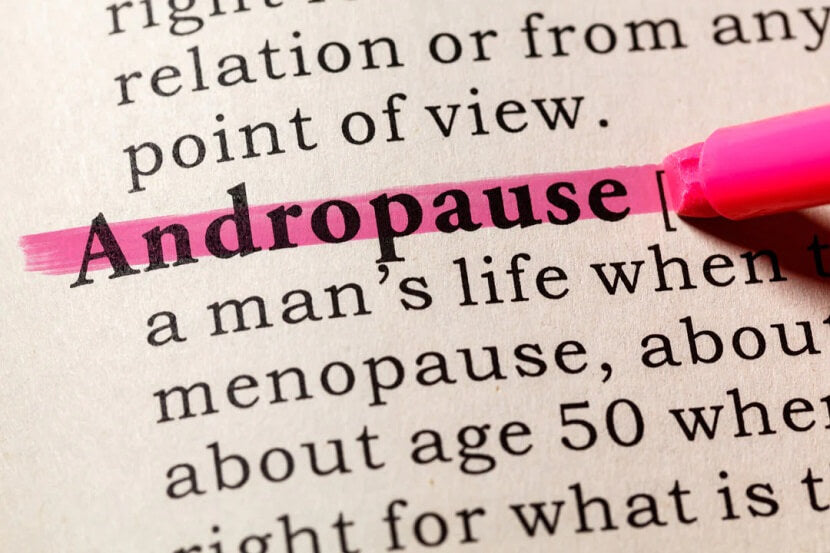In Short
Dizziness during menopause is often caused by hormonal fluctuations, impacting blood flow, balance, and energy levels. This article explores the causes, types, and natural remedies for managing dizziness, including herbal supplements, dietary changes, lifestyle modifications, and stress reduction techniques.
Does Menopause Cause Dizziness?
Menopause is a natural biological transition marking the end of a woman's reproductive years, typically occurring between ages 45 and 55. During perimenopause and menopause, hormonal fluctuations—especially oestrogen and progesterone decline—can contribute to various symptoms, including dizziness.
Causes of Dizziness in Menopause
Hormonal shifts can affect blood circulation and pressure, leading to dizziness in menopause. Contributing factors include:
- Low oestrogen levels: This impacts blood vessel regulation, reducing oxygen flow to the brain.
- Vasomotor symptoms: Hot flushes and night sweats may lead to dehydration, increasing dizziness.
- Anxiety and stress: Elevated adrenaline levels can disrupt balance and induce dizziness.
- Blood sugar fluctuations: Skipping meals or consuming high-sugar foods can lead to unstable glucose levels.
Types of Dizziness
Three different types of dizziness that can be experienced during menopause, including:
Light-headedness: This is a common type of dizziness experienced during menopause. It is characterised by a feeling of near-fainting or almost passing out. Women may describe it as feeling woozy or having a sensation of floating. Light-headedness often occurs when there is insufficient blood flow to the brain, leading to a temporary loss of consciousness. It can be triggered by hormonal changes, dehydration, or sudden position changes, such as standing up quickly.
Vertigo: Vertigo is a specific type of dizziness characterised by a false sensation of spinning or rotational movement. Women experiencing vertigo may feel as though they or their surroundings are moving or rotating when they aren’t. Vertigo can be quite disorienting and is often associated with inner ear issues or disturbances in the body's balance system. Menopausal vertigo may be linked to hormonal fluctuations or other physiological changes.
Disequilibrium: Disequilibrium refers to a feeling of unsteadiness or imbalance. It is not characterised by a spinning sensation like vertigo but rather a general sensation of being off-balance. Women experiencing disequilibrium may feel like they are about to fall, even though they may not actually be falling. This type of dizziness can result from changes in muscle strength and coordination, joint issues, or compromised postural control, which can be associated with the hormonal fluctuations and physical changes that occur during menopause.
Natural Remedies to Help Manage Menopausal Dizziness
Herbal supplements and remedies as well as vitamins and minerals can play a crucial role in managing dizziness. Here are some natural approaches and their benefits:
- Ginkgo biloba is an herb that has potential to improve blood circulation and enhance cognitive function. It can help to improve blood flow to the brain and may help reduce light-headedness and unsteadiness.
- Ginger is a natural remedy known for its anti-nausea and anti-inflammatory properties. It can be beneficial in reducing dizziness especially where this is accompanied with nausea. Ginger can be consumed fresh, in a tea or in a supplement.
- Vitamin D play a crucial role in maintaining bone health and hormonal balance. Adequate vitamin D levels are essential for maintaining proper neuromuscular function, neurotransmitters and hormones which can prevent dizziness and falls.
- Magnesium is an essential mineral that plays a role in muscle function and relaxation as well as supporting the function of neurotransmitters in the brain and nervous system. Neurotransmitters are chemical messengers that transmit signals between nerve cells (neurons). Magnesium also helps to stabilise blood sugar, regulate blood pressure and reduce inflammation. This is a crucial mineral for reducing dizziness.

Dietary Changes to Reduce Dizziness
🥗 Hydration: Dehydration can worsen dizziness—drink at least 2 litres of water daily.
🥗 Balanced Diet: Prioritise whole grains, lean protein, healthy fats, and fresh produce.
🥗 Blood Sugar Control: Include wild-caught fish, organic eggs, grass-fed beef, nuts, seeds, and quinoa for stable glucose levels.
🛡️ Foods & Drinks to Limit:
❌ Caffeine – Can cause dehydration and overstimulation.
❌ Excess Salt – Increases blood pressure fluctuations.
❌ Alcohol – Can worsen dehydration and affect blood circulation.
❌ Skipping Meals – Causes glucose drops leading to dizziness.
Lifestyle Modifications for Managing Dizziness
Exercise & Physical Activity
🏃♀️ Regular movement improves blood circulation and balance. Try:
- Yoga & Tai Chi – Enhance stability and reduce stress.
- Strength Training – Supports posture and coordination.
- Walking & Swimming – Maintain cardiovascular health.
Stress Management
🦾 Deep Breathing & Meditation: Helps regulate adrenaline levels.
🛏 Quality Sleep: A consistent sleep schedule reduces fatigue and dizziness.
🌡️ Avoid Temperature Extremes: Sudden hot or cold exposure can trigger dizziness.
When Should You Seek Medical Guidance?
While natural remedies help manage menopause dizziness, professional naturopathic or medical guidance is essential if:
✅ Dizziness occurs daily or disrupts daily life.
✅ You experience fainting, severe imbalance, or persistent vertigo.
✅ Other concerning symptoms like heart palpitations or vision changes accompany dizziness.
Check out how our NEW book can help
Our newly released Happy Healthy You book is a valuable resource to first understand how your body works, and then take proactive steps to improve your health. It also includes over a hundred of our curated recipes that can help you in your journey to optimum health and wellness, plus occasional treats to reward your efforts the healthy way!
Just click on the image below to learn more and order your copy online.
Lifestyle Modifications
Managing menopausal symptoms, including dizziness can be significantly improved through lifestyle modifications. Regular physical activity offers numerous benefits including improved blood circulation, enhanced balance and coordination, and stress reduction. Exercise also helps to stabilise blood sugar levels and can improve blood pressure.
Stress and anxiety can exacerbate dizziness during menopause. Incorporate stress management techniques like deep breathing, meditation, and yoga into your daily routine. These practices promote relaxation, help stabilise blood pressure, reduce tension, and improve emotional well-being, ultimately helping to alleviate the impact of stress on dizziness.
Quality sleep is essential for managing menopausal symptoms, including dizziness. Ensure you have a consistent sleep schedule, create a comfortable sleep environment, and practice good sleep hygiene. Adequate and restful sleep can help reduce fatigue, stress, and the risk of dizziness episodes.
To minimise the risk of dizzy episodes, be mindful of potential triggers. Avoid extreme temperatures, as sudden temperature changes can affect blood pressure. Protect your eyes from bright lights and stay hydrated to prevent potential triggers related to dehydration.
When Should You Seek Medical Guidance?
If you experience menopausal dizziness, we encourage you to book our online clinic to see one of our Naturopaths to discuss how we can help you further. If dizziness is becoming an everyday thing and taking over your life, we highly suggest visiting your general practitioner.
Natural Remedies for Menopausal Dizziness
Several natural approaches can help alleviate menopause dizziness effectively.
Herbal Supplements & Essential Nutrients
🌿 Ginkgo Biloba – Improves blood circulation and brain oxygenation.
🌿 Ginger – Reduces nausea-related dizziness. Can be consumed as tea or supplements.
💊 Vitamin D – Supports neuromuscular function and hormonal balance.
💊 Magnesium – Helps regulate blood sugar, blood pressure, and neurotransmitter function.
Managing Menopausal Dizziness – The Takeaway
Key Takeaways
✔ Menopause dizziness results from hormonal changes affecting blood circulation, balance, and stress levels.
✔ Natural remedies include ginkgo biloba, ginger, vitamin D, and magnesium.
✔ A balanced diet, hydration, and avoiding stimulants help regulate symptoms.
✔ Lifestyle changes such as exercise, stress management, and quality sleep support overall well-being.
✔ Seek medical advice if dizziness persists or worsens.
Academic References
Scientific Studies & Health Resources
Smith, R. et al. (2021). The Role of Oestrogen in Blood Pressure Regulation. Journal of Endocrinology & Metabolism.
Jones, P. et al. (2022). The Impact of Menopause on Vestibular Function. Australian Journal of Women's Health.
National Institute of Health (NIH). Menopause & Hormonal Changes: Understanding the Effects.










Leave a comment
This site is protected by hCaptcha and the hCaptcha Privacy Policy and Terms of Service apply.